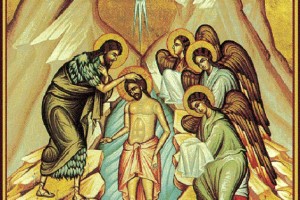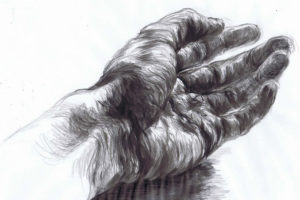In light of Nathaniel Warne’s recent post on Harry Potter, I thought I’d supplement his excellent post with additional issues related to Harry Potter’s much needed vindication among conservative Christians.
Growing up everyone told me that Harry Potter was evil so I never read the books. Although to be honest, even if people had told me that they were amazing I probably wouldn’t have read them either since I didn’t care for reading until my Sophomore year of college actually. Yet, in August of 2009 I decided to read the entire series, which took me 24 days. I was hooked. I completely loved it. And the timing was impeccable. Harry Potter entered my world at a low point in my life. My emotional recovery through a piece of Art like Harry Potter was invaluable, and as my buddy Ryan Lunde shared with me, my experience paralleled the role of Poetry in Boethius’ recovery after he was falsely imprisoned for conspiring against King Theodoric of Rome (not the kind of thing I know too much about). There is something about good Art that can help mend one’s soul. So the story of Harry Potter will always have a special place in my heart. But what I realized was that there were still some Christians who had major reservations about Harry Potter. In fact, my own Mother was quite upset with me and I was nearly 23 years old at the time! So ever since I originally read the series I’ve had to provide an apologetic for Harry Potter. Thus, we must ask, is the story fundamentally pagan?
From reading the series it is clear that Harry Potter is a Christian allegory much like The Chronicles of Narnia and The Lord of the Rings. This fact is frankly unmistakable. This is why RELEVANT can call Harry Potter one of the most Christian symbols in pop culture. For the sake of avoiding spoilers for those who haven’t yet had the privilege of reading through the series I won’t spell out the Christian themes (but they’re so obvious!). Rather I will simply say that there were times when I got teary eyed while reading as I reflected upon the theological parallels.
It should also be noted that J. K. Rowling, the author of the series, is a Christian woman. In fact, she is a member of the Church of Scotland, which is historically Presbyterian, and her children have been baptized. Now, I’m not going to defend the reputability of Rowling, as I don’t know her personally, but she has admitted that she intended the Harry Potter story to reflect the struggles she has with her own Christian faith.
If one wants to see explicit proof that this is the case, John Granger, the self-proclaimed “Professor Hogwarts” and the upcoming keynote speaker at the Harry Potter and Literature conference at St Andrews in May 2012, has written several books on the Christian elements in Harry Potter. Originally, Granger was skeptical about Harry Potter and thought it was evil. But when his daughter brought The Sorceror’s Stone home, the first book of the series, he decided that he would read it himself and then make a judgment. That night he stayed up until he read the entire thing! He decided, not only that it wasn’t evil, but that he wanted his daughter to read it. He notes that one of the important things that the books do that he had not expected was that they train young readers in the “stock responses.” That is, they call it like it is, and don’t blur the lines between good and evil. With the presence of sorcery, many have supposed that the important distinction between good and evil has been blurred, especially since Hogwarts is a place where kids learn witchcraft and wizardy! But three things about the sorcery of Harry Potter are in order at this point:
1) Those who practice magic in Harry Potter are a limited few. You cannot simply learn magic. Harry Potter is more like X-Men in this regard. Some people are born with the ability, and others are not. Thus, Hogwarts is a place where students learn how to harness their abilities. 2) The magic of Harry Potter is not invocational magic, but incantational. This is actually a very important distinction. The magic condemned in the Bible is of the invocational sort. This is the kind of magic where spirits are summoned and called upon to perform magic. This is rightfully a demonic form of magic. However, the magic of Harry Potter is incantational. This is where an individual causes something magical to happen without the aid of another being. Thus, the difference is one of creation versus mediation. 3) One that is often overlooked, Rowling herself does not believe in magic! She believes in God, not Magic! The role of Magic provides fantastical elements to make her fictional story interesting, compelling, and imaginative. This is where parallels to C. S. Lewis and J. R. R. Tolkein are apt. Though if you’re ready to cry foul and argue that only the “bad guys” practice magic in Narnia don’t forget about The Magician’s Nephew. And if you think that Magicians are always condemned in the Bible, remember that whole bit about “wise men” from the East following a star on the night that Jesus was born? Yep, they were Magicians (Matt 2.1; μάγοι).
Beyond the issue of whether or not the story of Harry Potter is Christian or Pagan, we must not miss the fact that Harry Potter has many positive social benefits. Perhaps the most obvious benefit is that Harry Potter gets children to read! Furthermore, it’s not mindless entertainment. There is a great deal of literary depth in the story with allusions to Dante, Skakespeare, Jane Austin, and others. Also, as a classicist, Rowling utilized a lot of latin in the story for her creative use of spells. For me, none is more impactful than the theology behind the famous Patronus charm. The famous line, “Expecto Patronum,” literally means in latin, “I await a helper.” The parallels to the Holy Spirit as the great Comforter or Helper (Παράκλητος; Paraclete) of John’s Gospel is quite apparent. …Or, should I say, the Helper of Lazarus’ Gospel? : )
Undoubtedly, many will continue to renounce Harry Potter as a demonic piece of literature. However, this position cannot be held when compared to the blatant Christian imagery in the book, or the fact that many others in the Christian tradition have utilized the the medium of Myth and Fantasy to communicate the Age-Old Story. Its an effective medium at that and Rowling has succeeded in bearing the torch of Lewis, Tolkein, and other Christians story-tellers. Who knew that even Harry Potter has managed to smuggle the Gospel into the hearts of so many people?





6 Comments
Leave your reply.